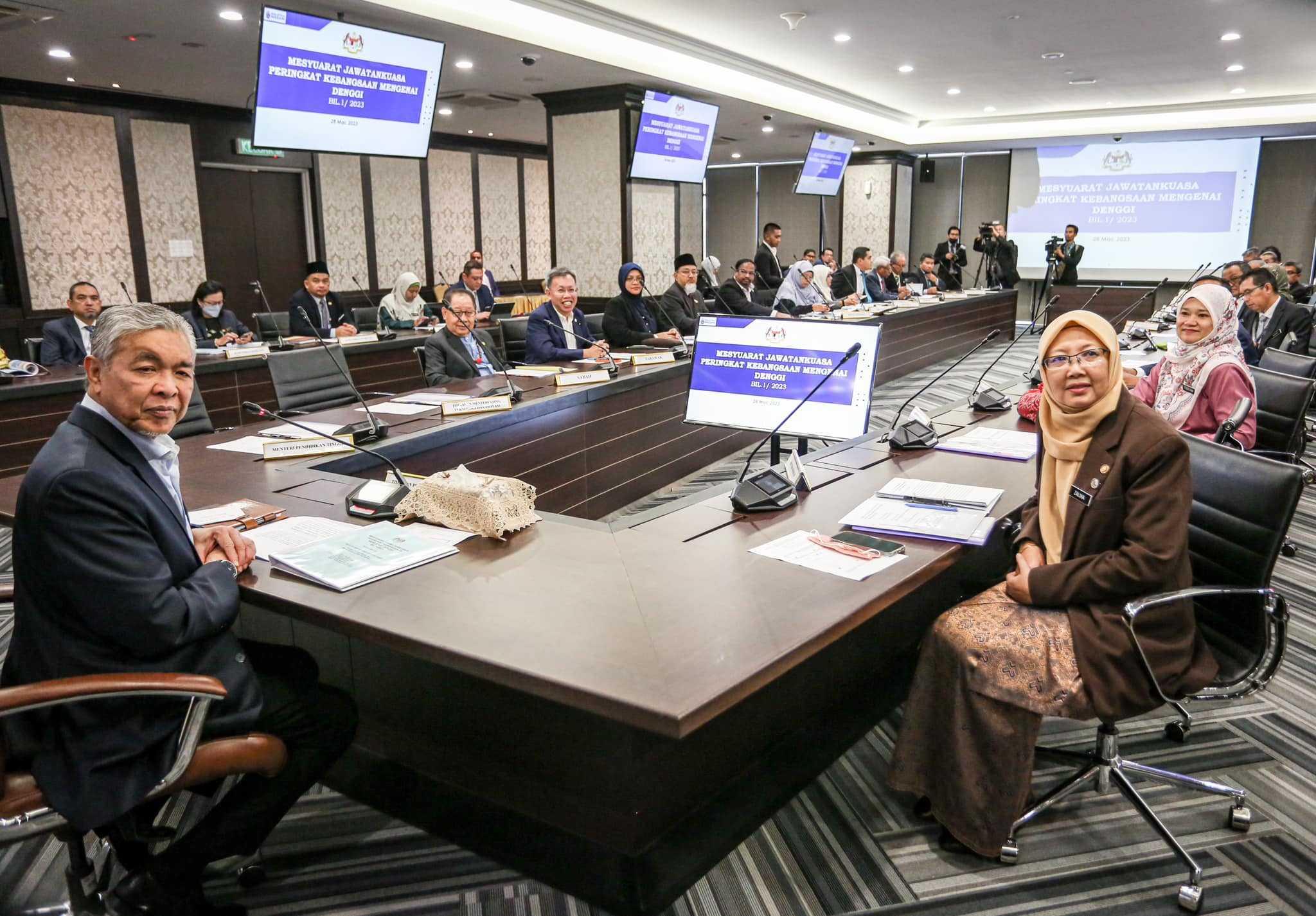Putrajaya under fire after health minister delists liquid nicotine ahead of new vape tax
The decision comes despite strong objections from medical experts, with one group warning that it is a recipe for a major health crisis.
Just In
Prime Minister Anwar Ibrahim's administration has come under fire from the medical fraternity after deciding that liquid or gel nicotine – the main ingredient for vape products – will no longer be a controlled substance under the Poisons Act, paving the way for the government to tax vape products as announced in the 2023 budget.
Health Minister Dr Zaliha Mustafa announced the exemption yesterday despite strong objections from the Malaysian Pharmacists Society, Malaysian Council for Tobacco Control and public health advocate Galen Centre for Health and Social Policy.
Leading the charge was Galen Centre which expressed shock at the government's decision, calling it an "exceptionally regressive move" that raises questions about Putrajaya's commitment to public health.
"How did we get from being leaders in advocating a progressive policy which aims to produce a smoke-free generation of people, to a policy which deregulates nicotine and encourages the growth of the local nicotine vape industry?" asked the centre's CEO Azrul Mohd Khalib.
Galen Centre also alluded to the efforts of health professionals in their decades-long campaign to stop the smoking habit.
"It must be incredibly frustrating for them to see this happen," it said.
The decision by Zaliha stands in contrast with the anti-smoking drive by her predecessor Khairy Jamaluddin, who pushed for a historic bill that would have seen a ban on the consumption of tobacco products or substitutes on those born after 2007.
The generational endgame bill was criticised by some Pakatan Harapan (PH) leaders including Anwar during his time as the opposition leader. He said the Control of Tobacco Product and Smoking Bill might violate "constitutional rights".
The bill was not passed following delays caused by PH leaders who called for a special parliamentary committee to examine it.
Azrul today said the decision to delist liquid nicotine as a poison was designed not only to legitimise e-cigarettes and vape, but to encourage more business opportunities for such products so that the government could collect tax from them.
He also said Putrajaya was moving against the global trend of reducing smoking and vaping.
"This government decision now undermines and removes a cornerstone of anti-tobacco policy in Malaysia.
"Unfortunately, this country will join an exclusive group of nations which are reversing or ignoring anti-tobacco measures intended to reduce the prevalence of smoking, the number of young smokers and vapers, nicotine addiction, cancer, and premature death," he added.
He said the move also showed the government's desire for more revenue at the cost of public health, adding that it would open the "floodgates to existing and new problems".
"This decision is likely to mark the beginning of one of the biggest public health crises in Malaysia: a dramatic increase in young people and children who are addicted to nicotine, through vape.
"We are already going through a non-communicable diseases crisis with millions of people living with diabetes, cancer, hypertension and obesity. This will be the next one."
Azrul said the new status of nicotine in Malaysia meant it would be easily accessible to all including minors, with nothing to prevent it from being sold online.
He warned that despite the billions of ringgit collected from vape products, the revenue would be used up in treating diabetes caused by vaping.
"Those who vape have a 22% increased risk of developing prediabetes compared to those who do not. Encouraging vaping will increase the number of people suffering from diabetes, and increase the cost on the healthcare system," he said.
He said the government must stop giving excuses to delay the retabling of the Tobacco and Smoking Control Bill.
"No more excuses, ifs and buts. Vape should be taxed but it also needs to be regulated as strictly as tobacco. That is only possible with the provisions contained in the bill.
"The government and MPs must find the moral courage and vision to step up and do the right thing," said Azrul, adding that the health of future generations was at stake.
"One day, we will look back at the harm and suffering caused by smoking and vaping, the lives lost prematurely, the billions spent, and wonder why we did not act sooner."
Subscribe to our newsletter
To be updated with all the latest news and analyses daily.
